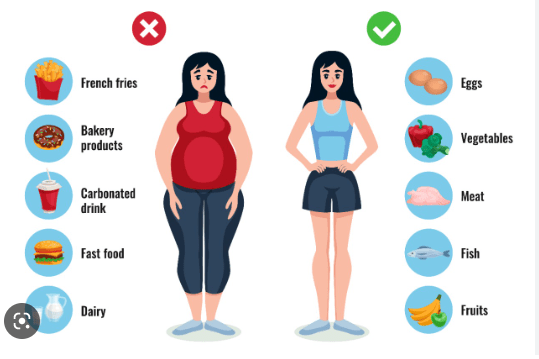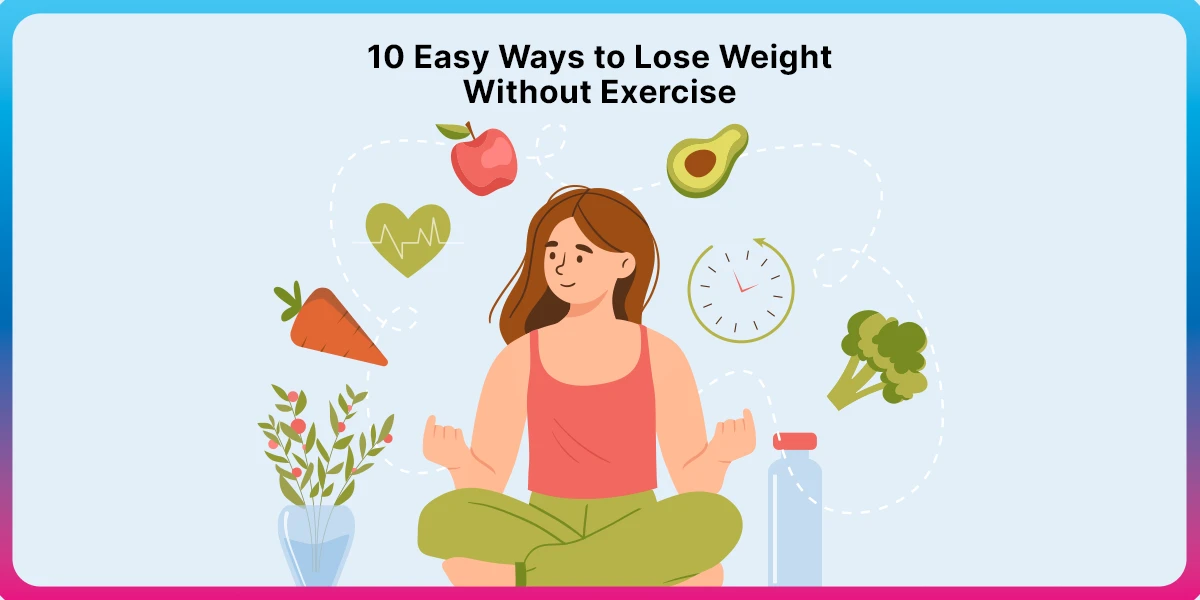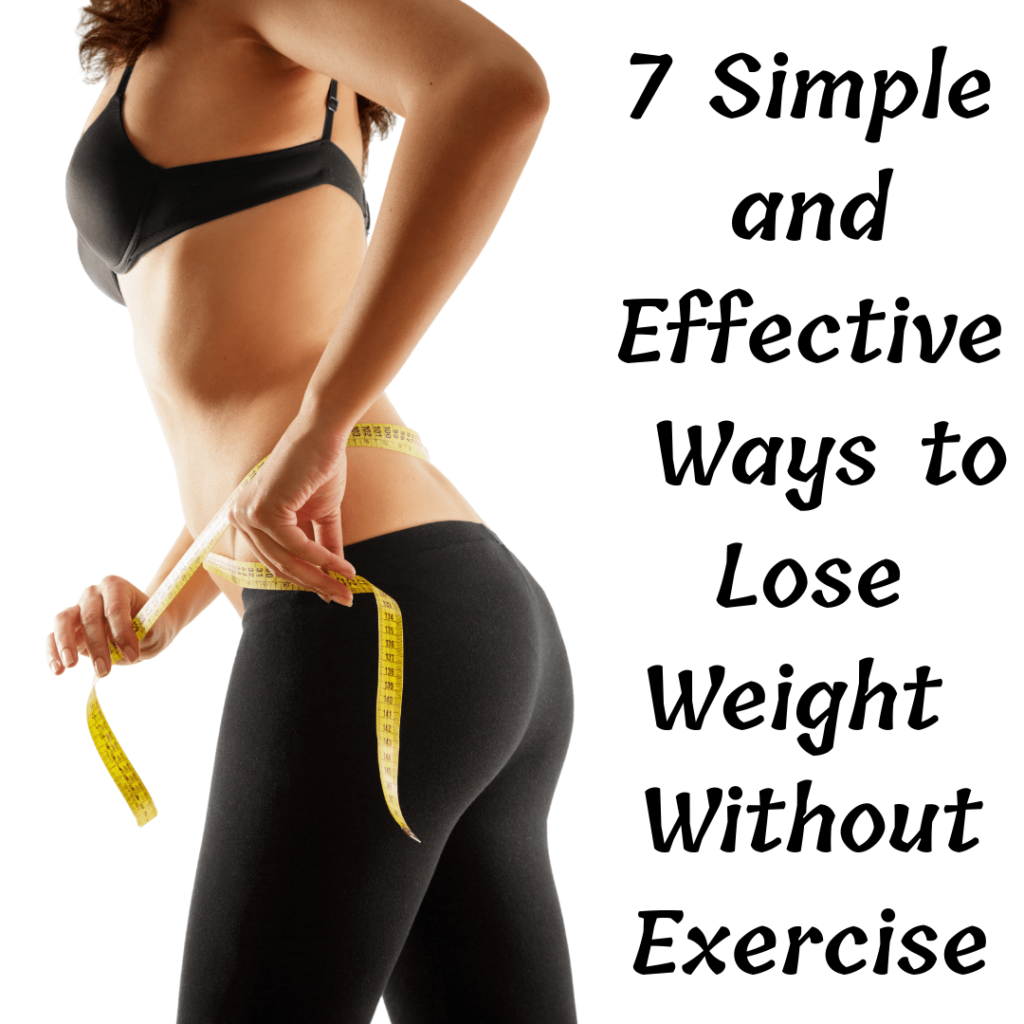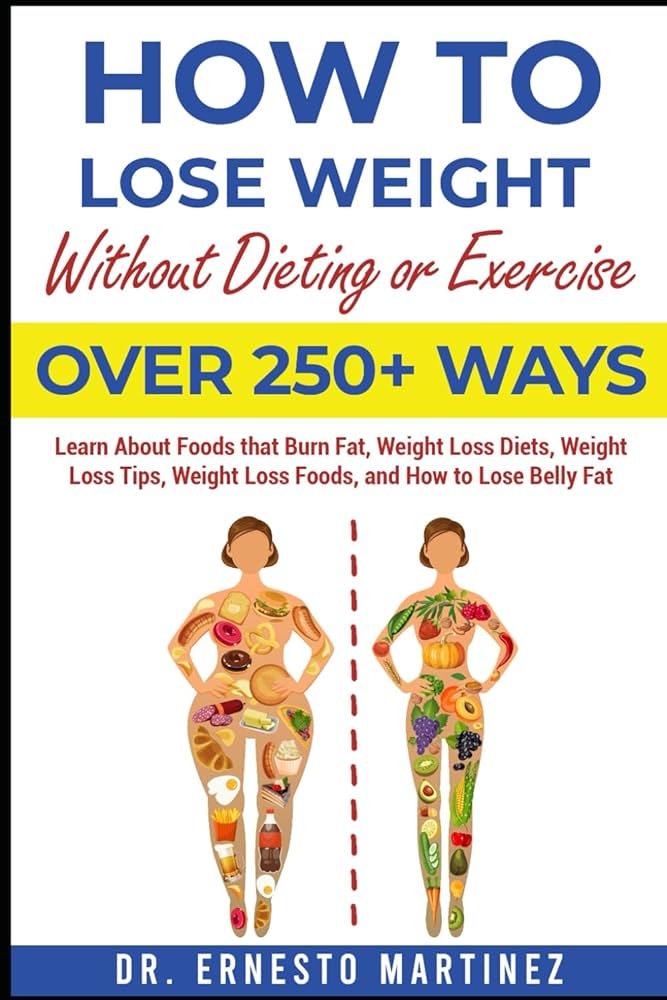Welcome to a journey where you discover whether shedding those extra pounds without breaking a sweat is a reality. In the article, “Is it Possible to Lose Weight Without Exercise?” you will explore various methods and principles that focus on diet, lifestyle changes, and mindful habits. You’ll find insights on how small, sustainable changes can lead to significant weight loss, even if hitting the gym isn’t your thing. Get ready to unlock the secrets to a healthier you, one step at a time. Have you ever found yourself wondering if you can lose weight without hitting the gym or committing to a rigorous exercise routine every day? If so, you’re definitely not alone. The idea of shedding pounds without sweat-drenched workout sessions captivates many, especially those with tight schedules, physical limitations, or just a general disdain for exercise. So, let’s dive into this intriguing question: Is it possible to lose weight without exercise?

Understanding Weight Loss Basics
Before we get into the nitty-gritty, it’s crucial to understand the fundamental principles behind weight loss. Essentially, weight loss occurs when you burn more calories than you consume. This is often referred to as a calorie deficit. Generally, people achieve a calorie deficit through a combination of diet and exercise. But can you create a significant calorie deficit through diet alone?
The Role of Calories in Weight Loss
Calories are units of energy that your body derives from food and drinks. Consuming more calories than your body needs leads to weight gain, while consuming fewer calories than you burn leads to weight loss. It’s a simple equation, but how you manage those calories makes all the difference.
Example of How Calories Work:
| Consumed | Burned | Net Result |
|---|---|---|
| 2000 | 2500 | -500 (deficit) |
| 2500 | 2000 | +500 (surplus) |
By reducing your calorie intake, you can create a calorie deficit and potentially lose weight without needing to exercise.
Strategies for Weight Loss Without Exercise
If hitting the gym isn’t your thing, don’t fret! There are several dietary strategies you can employ to help shed those extra pounds.
Caloric Restriction
One of the most effective ways to lose weight is to consume fewer calories. This doesn’t mean you have to starve yourself. Instead, focus on nutrient-dense foods that provide fewer calories but more nutritional benefits.
Portion Control
Portion control is an excellent strategy for reducing your calorie intake. By being mindful of the quantity of food you consume, you can significantly cut back on the calories without feeling deprived.
Eating Low-Calorie, Nutrient-Dense Foods
Foods high in vitamins, minerals, and other essential nutrients but low in calories are your best friends. Think vegetables, fruits, lean proteins, and whole grains. These foods not only help you feel full but also provide the necessary nutrients your body requires.
Intermittent Fasting
Intermittent fasting has gained popularity as an effective weight-loss method. This involves alternating periods of eating and fasting. The most common approach is the 16/8 method, where you fast for 16 hours and eat during an 8-hour window.
Benefits of Intermittent Fasting
- Helps reduce calorie intake
- Improves metabolic health
- Supports fat loss while preserving muscle mass
Mindful Eating
Mindful eating is about paying full attention to your eating experience. It encourages you to eat slowly and savor each bite, which can help you recognize when you’re full and prevent overeating.
How to Eat Mindfully
- Eat without distractions: Turn off the TV and put away your phone.
- Chew thoroughly: Take your time to chew and savor each bite.
- Listen to your hunger cues: Eat when you’re hungry and stop when you’re satisfied.
Hydration is Key
Staying hydrated is crucial for weight loss. Sometimes, your body can mistake thirst for hunger, leading to unnecessary snacking. Drinking enough water ensures that you’re well-hydrated and can help control your appetite.
Reducing Sugar and Refined Carbohydrates
Sugar and refined carbohydrates are high in calories and low in nutritional value. Limiting these in your diet can lead to a significant reduction in your daily caloric intake.
Foods to Avoid
- Sugary drinks (soda, energy drinks, etc.)
- Processed snacks (chips, cookies, etc.)
- White bread and pastries
Instead, opt for whole foods like fruits, vegetables, and whole grains.
The Importance of a Balanced Diet
While it’s possible to lose weight without exercise, achieving sustainable and healthy weight loss requires a balanced diet. You need a mix of macronutrients (proteins, fats, and carbohydrates) and micronutrients (vitamins and minerals) to maintain overall health.
Macronutrients
- Proteins: Essential for maintaining muscle mass. Sources include lean meats, fish, eggs, and legumes.
- Fats: Necessary for hormone production and cell function. Opt for healthy fats like avocados, olive oil, and nuts.
- Carbohydrates: Provide energy, especially from whole grains like oats, quinoa, and brown rice.
Micronutrients
Though required in smaller amounts, vitamins and minerals play crucial roles in bodily functions. Ensure your diet is rich in fruits, vegetables, nuts, and seeds to get a wide range of these essential nutrients.
The Role of Metabolism
Your metabolism is the process by which your body converts food into energy. A faster metabolism burns more calories, while a slower metabolism burns fewer. Certain factors like age, gender, and genetics can affect your metabolic rate, but you can also influence it through diet.
Boosting Your Metabolism
- Eat Enough Protein: Protein has a high thermic effect, meaning your body burns more calories digesting it.
- Drink Green Tea: Contains compounds that can temporarily boost metabolism.
- Stay Hydrated: Water is essential for metabolic processes.

Behavioral Modifications
Your eating habits and lifestyle choices play a significant role in weight loss. Sometimes, small changes can make a big difference.
Sleep
Lack of sleep can lead to weight gain by increasing hunger hormones and cravings for unhealthy foods. Aim for 7-9 hours of quality sleep per night to support your weight loss efforts.
Stress Management
Chronic stress can lead to overeating and weight gain. Practice stress management techniques like meditation, deep breathing, or hobbies to keep stress levels in check.
Social and Environmental Factors
The people you hang out with and your immediate environment can have a big impact on your eating habits.
Social Support
Having a robust support system can make your weight loss journey more manageable. Share your goals with family and friends, or join a community group interested in healthy eating.
Environment
Your environment plays a crucial role in dictating your eating habits. If your kitchen is stocked with unhealthy snacks, you’re more likely to indulge. Make your home a supportive environment for your weight loss journey.
Practical Tips
- Keep healthy snacks visible: Place fruits, nuts, and other healthy options where you can see them.
- Pre-portion snacks: Instead of eating straight from the bag, pre-portion snacks to avoid overeating.

Professional Guidance
Sometimes, it’s beneficial to seek professional help to tailor a diet plan that meets your specific needs and goals.
Dietitians and Nutritionists
These professionals can provide personalized advice and accountability, making it easier for you to stick to your diet plan.
Medical Consultation
Always consult with a healthcare provider before making significant changes to your diet, especially if you have underlying health conditions.
Myths and Misconceptions
There are plenty of myths surrounding weight loss, some of which can be misleading or even harmful. Let’s debunk a few.
Myth: All Calories Are Equal
While a calorie is technically a unit of energy, not all calories have the same effect on your body. For example, 100 calories from a candy bar do not provide the same nutritional benefits as 100 calories from an apple.
Myth: You Need to Starve to Lose Weight
Starvation can lead to muscle loss, nutritional deficiencies, and a slower metabolism. More importantly, it’s unsustainable in the long run.
Myth: Supplements Are Essential
While some supplements can aid in weight loss, they are not a magic solution. A balanced diet should provide most of the nutrients you need.

Success Stories
Sometimes, hearing from others who have successfully lost weight without exercise can be incredibly motivating.
Real-life Examples
Sarah’s Story
Sarah lost 30 pounds by focusing on a balanced diet, portion control, and mindful eating. She didn’t step foot in the gym!
Mike’s Journey
Mike managed to shed 40 pounds through intermittent fasting and cutting out sugary drinks. Exercise wasn’t feasible due to a knee injury, but diet alone worked wonders for him.
Conclusion
So, is it possible to lose weight without exercise? Absolutely. While exercise has many benefits for overall health and can enhance weight loss, it is not a prerequisite. By focusing on a balanced diet, caloric restriction, and mindful eating, you can achieve your weight loss goals. Remember, the key is sustainability and making changes that you can maintain in the long run. Good luck on your journey!
